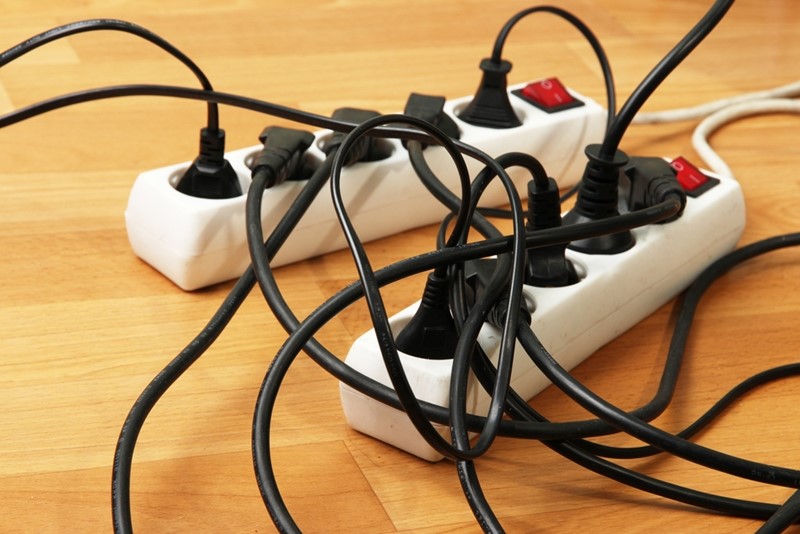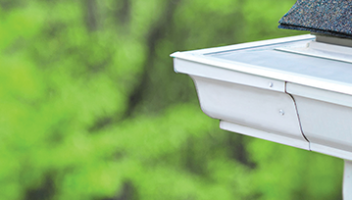How to Maintain an Eco-Friendly Home

From saving money on your electric bill to reducing energy dependency, there are plenty of benefits homeowners can experience by having a more eco-friendly home. It’s easy to forget how much of the resources we use goes to waste around our home because of a lack of awareness. The same is true of the area around our houses, as the yard or garden is another place where there’s plenty of potential to abide by more environmentally-favorable practices. Want to learn how you can reap the benefits of a more eco-friendly home and yard? Check out these tips:
Perform an energy audit
Reducing the amount of electricity you use is the first step toward creating a more environmentally sound home. Start by checking out every room in the house. Make a note of how often you see an electrical device that’s plugged into an outlet. Now consider how often you use this item. Is it really worth leaving a digital clock constantly plugged in a guest bedroom that’s rarely occupied? The same can be said for areas with heavy foot traffic, especially the kitchen. Smaller appliances, such as toasters and blenders, are typically only used for making toast in the morning or an afternoon smoothie, so leaving them plugged in throughout the day is definitely a waste of electricity. If you’re considering investing in new larger appliances, like refrigerators or dishwashers, look for machines that have an Energy Star sticker on them. This sign means that the product meets the standards of the Energy Star program that’s supported by the Environmental Protection Agency.

Effective heating and cooling
Another key aspect of decreasing energy consumption in the house is ensuring your home has efficient heating and cooling. This is also a point of interest from a financial standpoint, as the Department of Energy reports that heating and cooling costs make up nearly 50 percent of the average homeowner’s utility bill. If you live in an area where cold temperatures are a forceful presence during winter, small air leaks might be reducing the effectiveness of your heating system. Check your home for any small cracks or tiny spaces between the windows, which can easily be filled up with sealant. During a hot summer, little things like keeping your window coverings down will block out the sun, slightly reducing interior temperatures so you don’t have to crank up the air conditioning. If you’re considering buying a new heating or cooling system, the Department of Energy suggests checking out the Annual Fuel Utilization Efficiency rating for furnaces and the Seasonal Energy Efficiency Ratio for air conditioners. The higher the rating for each system, the more eco-friendly your home will be, which in turn will help lower utility costs.
Recycle and repeat
While many people have caught on to the environmental benefits of recycling, there are certainly some who don’t exactly understand what good this process does. According to the EPA, recycling:
- Conserves natural resources such as water or timber
- Reduce waste sent to landfills and incinerators
- Decreases greenhouse gas emissions
- Prevents pollution and saves energy
- Creates new jobs for recycling and manufacturing facilities in the U.S.
While recycling cans and newspapers may not lower your utility bill, you certainly will be doing your planet a favor by ensuring that some of the products you’re throwing away can be used in the future.
“Gasoline-powered landscape equipment accounts for 5 percent of urban pollution.”
In the yard
Practicing environmentally friendly landscaping in your yard can be a big factor to reducing harmful pollutants and conserving resources. The EPA states that more than 5 percent of urban air pollution is created by gasoline-powered landscape equipment, so switching over to more electrically-charged products can make a positive impact on the environment. Certain types of yard waste, such as grass clippings, also account for more than 20 percent of municipal solid waste that takes up space in landfills. Reducing the amount of grass you have and installing areas of mulch will not only eliminate unnecessary waste, but also improve your yard’s water conservation. Eco-friendly landscaping can also lead to savings on utility bills, as the EPA also notes that energy-efficient landscaping can save homeowners up to 30 percent on heating or air conditioning bills.


